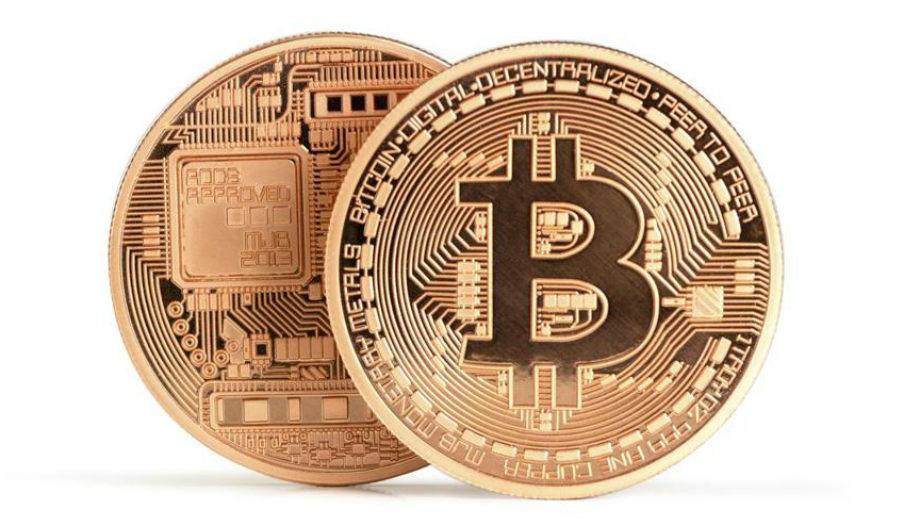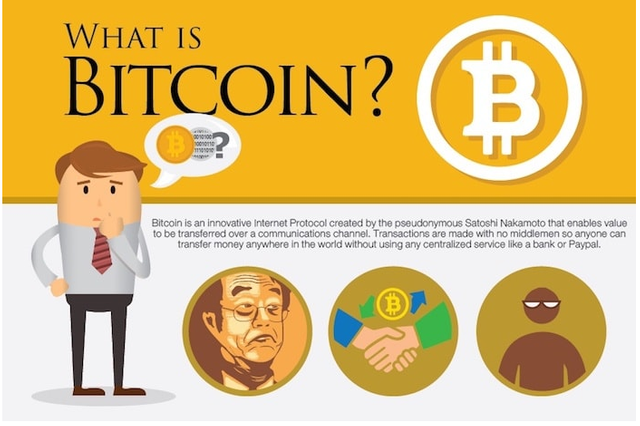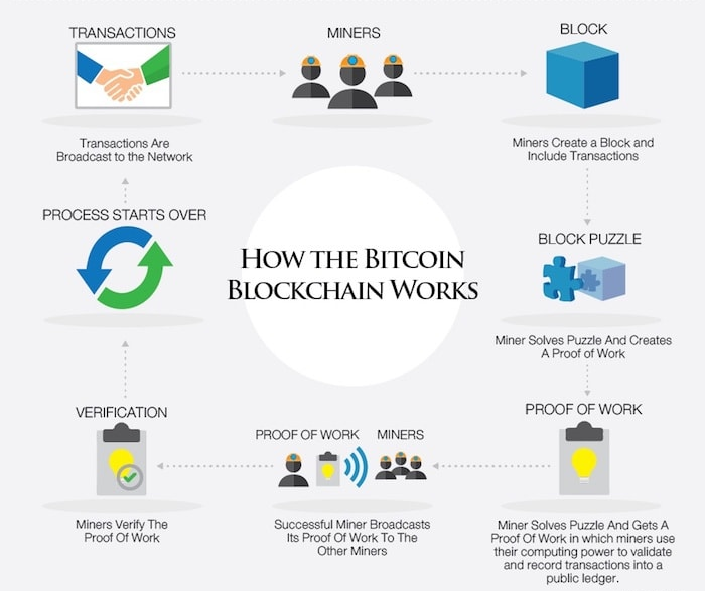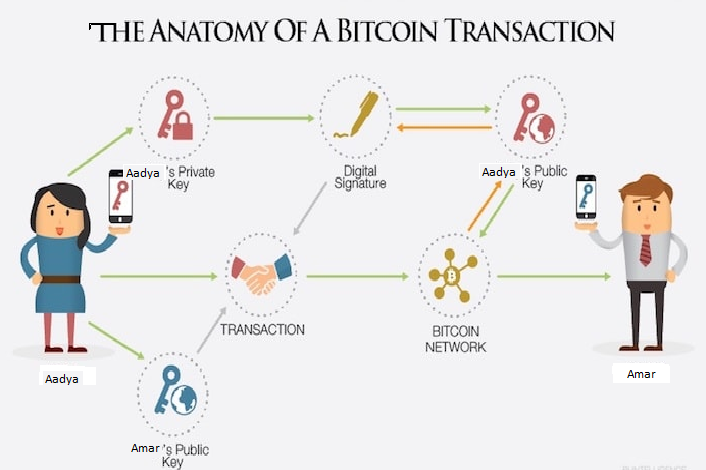
What is Bitcoin?
Bitcoin is a new currency that was created in 2009 by an unknown person using the alias Satoshi Nakamoto. Bitcoin is a digital token that can be sent electronically from one user to another, anywhere in the world. Transactions are made with no middle men – meaning, no banks! There are no transaction fees and no need to give your real name.
Bitcoin is also the name of the payment network on which the Bitcoin digital tokens move. Some people differentiate between Bitcoin capitalized, as the token, and bitcoin lowercase, as the network. Unlike traditional payment networks like Visa or American Express, no single company or person runs the Bitcoin network. Instead, it is a decentralized network of computers around the world that keep track of all Bitcoin transactions, similar to the decentralized network of servers that makes the internet work.

Bitcoin is different than any currency you’ve used before, so it's very important to understand some key points. Unlike government issued money, that can be inflated at will, the supply of bitcoin is mathematically limited to twenty one million bitcoins, and that can never be changed.
Bitcoins are impossible to counterfeit or inflate. You can use them to send or receive any amount of money, with anyone, anywhere in the world, at very low cost. Bitcoin payments are impossible to block, and bitcoin wallets can’t be frozen. Short of turning off the entire world's internet, and keeping it turned off, the Bitcoin network is unstoppable and uncensorable.
Because there is no central authority running Bitcoin, no one has the authority to force new users to reveal their identities. The network was designed this way to create a currency and a financial network outside the control of any government or single company.
The computers that join the network and track Bitcoin transactions are motivated to do so by the new coins that are released to the network every 10 minutes and are given to one of the computers helping to track the transactions and maintain the network.

Units
The unit of account of the bitcoin system is bitcoin.
As of 2014, symbols used to represent bitcoin are BTC, XBT, and  .
.
Small amounts of bitcoin used as alternative units are millibitcoin (mBTC), microbitcoin (µBTC, sometimes referred to as bit), and satoshi. Named in homage to bitcoin's creator, a satoshi is the smallest amount within bitcoin representing 0.00000001 bitcoin, one hundred millionth of a bitcoin. A millibitcoin equals to 0.001 bitcoin, one thousandth of a bitcoin. One microbitcoin equals to 0.000001 bitcoin, one millionth of a bitcoin.

It's worth more than an ounce of gold right now, it's completely digital and it's the currency of choice for the cyber attackers who crippled computer networks around the world in recent days. As per Cliff High's web bot prediction it can go upto 13000 by early next (2018) year spring
More merchants are beginning to accept them: You can buy web hosting services, pizza or even grocery. It's may be the future currency ..